Use this “Wee Willie Winkie” nursery rhyme poster to teach your youngest students about rhyme and rhythm.
Explore the “Wee Willie Winkie” Nursery Rhyme
Rhyme is a fundamental aspect of phonological awareness. The ability to hear and manipulate sounds in words lays the foundation for more complex literacy skills.
Listening to and reciting well-known nursery rhymes is a fun and highly educational experience for children. It allows them to actively participate in a shared activity while learning about sounds and language.
This poster featuring the rhyme “Wee Willie Winkie” makes a great teacher tool for exploring rhyme and rhythm with your youngest learners. It displays the complete rhyme in a child-friendly font, making it accessible for early readers to follow along. It also uses underlining to denote the rhyming pairs, e.g. town/gown, locks/o’clock.
Use This “Wee Willie Winkie” Poster in Your Classroom
This poster of the nursery rhyme “Wee Willie Winkie” can be used in multiple ways in your early years classroom. Here are a few suggestions from our teacher team:
- Shared Recital – Read/recite the rhyme as a class. Have the students clap out the rhythm of the rhyme as they go.
- Rhyming Word Bank – Choose one of the rhyming pairs from the poem, then see how many words students can brainstorm that rhyme with these words.
- Shared Writing – As a class, write a new verse for the rhyme that follows the same rhythm and rhyming pattern.
Download the Words to “Wee Willie Winkie”
Use the Download button to access the easy-print PDF.
Project the poster on your interactive whiteboard or print it for your classroom display board. If you intend to display the poster, we recommend enlarging it for enhanced readability.
More Rhyming Activities for Reception
Rhyming activities are an essential component of any early years classroom! Click here to access more teacher-created rhyming word activities from Teach Starter.
[resource:4281302] [resource:2717890] [resource:4481101]
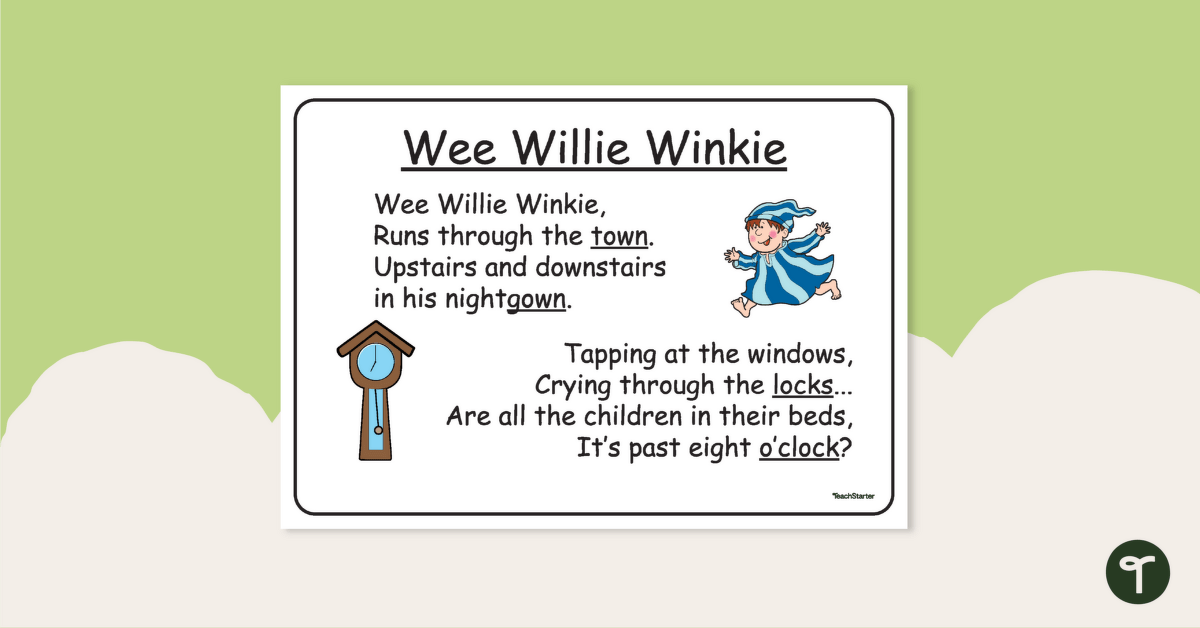

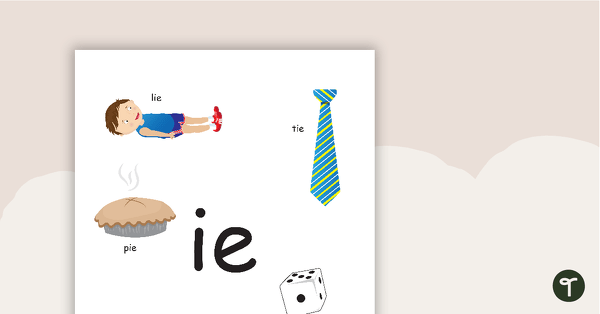
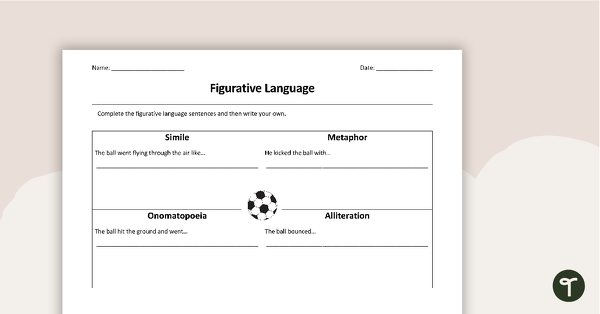
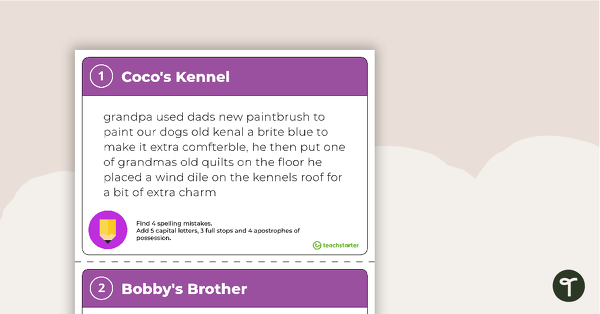
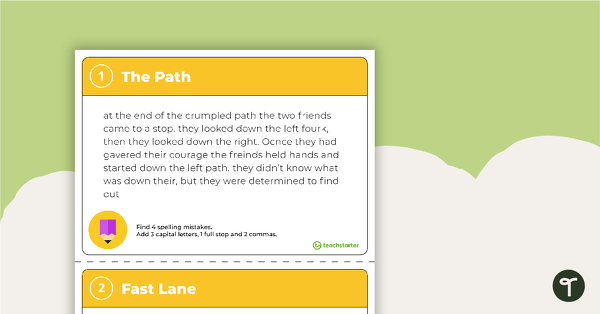
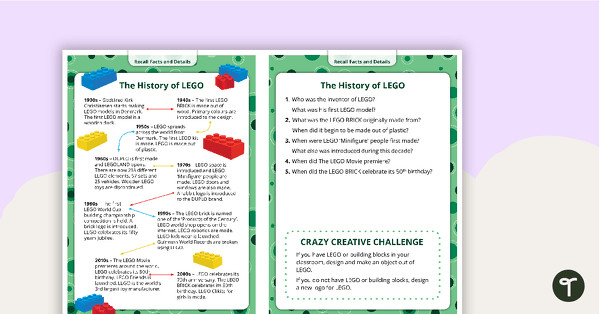
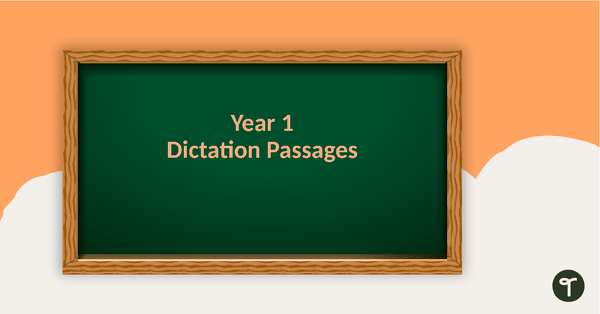
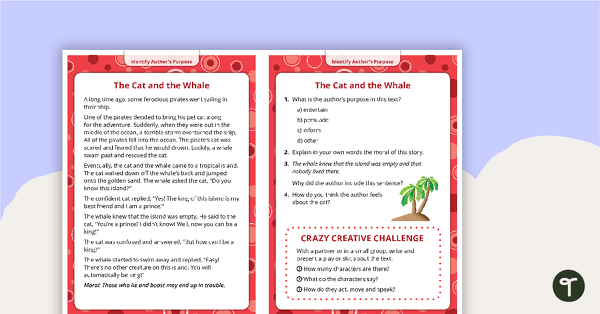
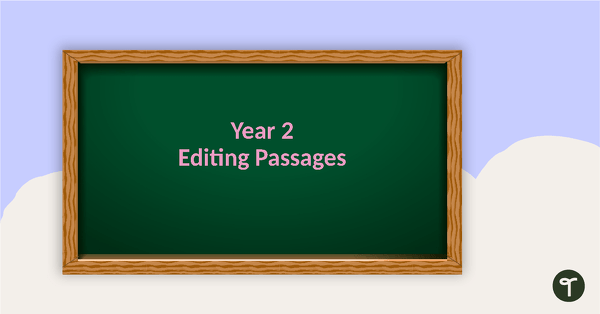
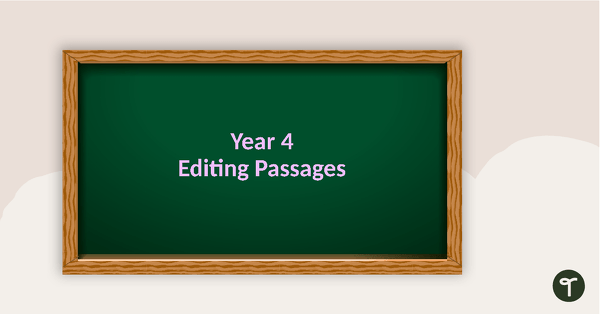
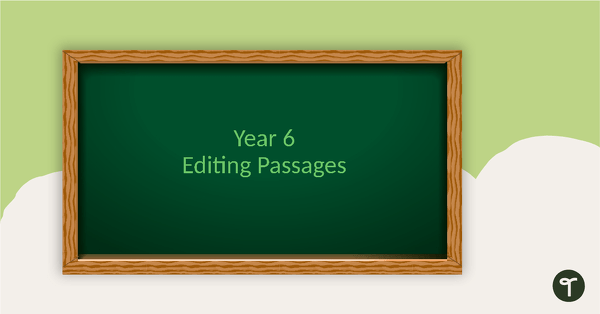
0 Comments
Write a review to help other teachers and parents like yourself. If you'd like to request a change to this resource, or report an error, select the corresponding tab above.